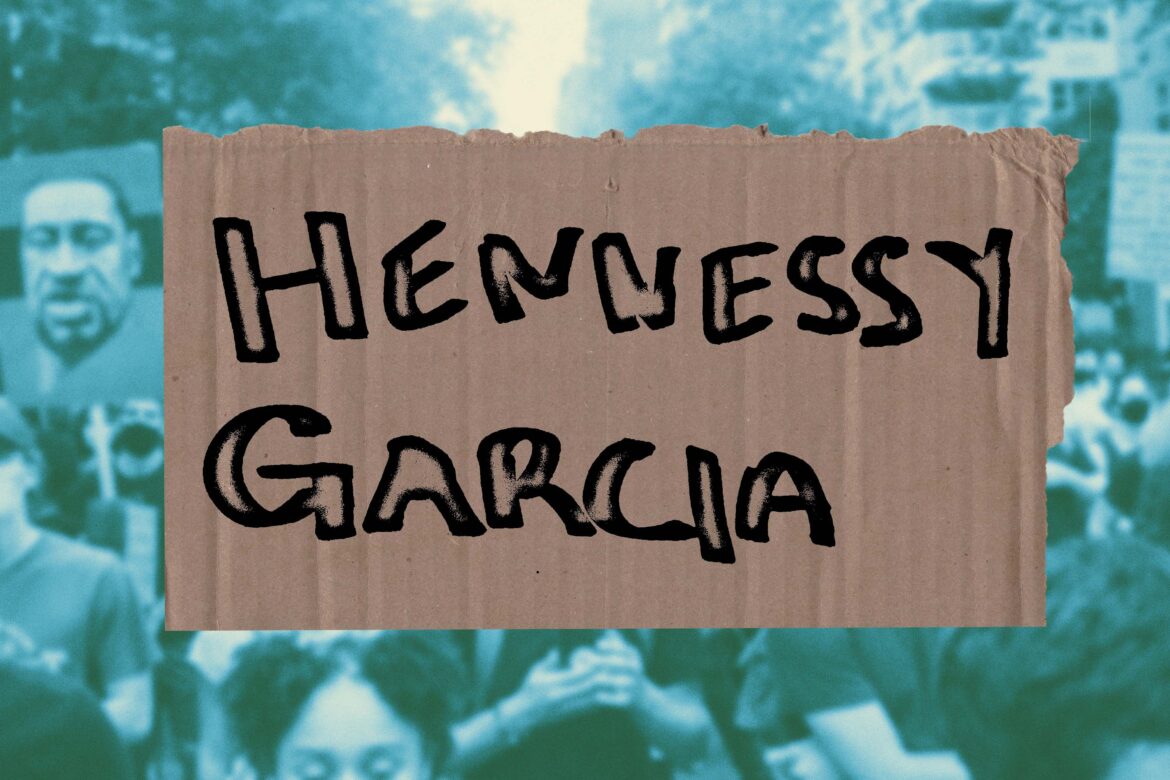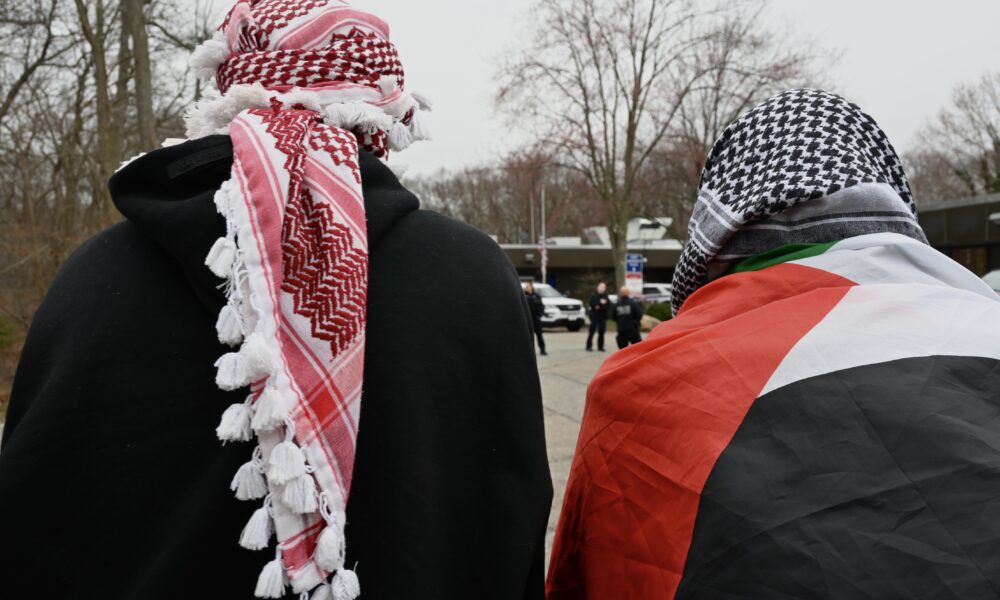Graphic by Antonio Mochmann
Hennessy Garcia led a Black Lives Matter march through Washington Square Park in New York City, during the summer of 2020, toting a loudspeaker and hair scrunchies. As she handed the megaphone off like a torch to people who wanted to voice their thoughts on police brutality and the justice system, a woman unaffiliated with the march made her way to the front and stripped naked. Garcia laughed.
Journalists, cops and marchers stopped to scan Garcia’s face — wondering how she would handle the unexpected event. She kept laughing and walked a little faster. Hundreds of people behind her walked a little faster too, shrouding the naked woman and the awkward situation in the bodies that followed Garcia’s steps.
Three years later, 25-year-old Garcia is still as down-to-earth as she was then. Nowadays, she is more cautious — but her impact on New York City communities has increased exponentially.
Born and raised in the South Bronx, the Indigenous Afro-Latina was ushered into a climate story, which is a personal experience with the effects of climate change. They’re often more prevalent in underprivileged communities.
In the Bronx, the poverty rate was 26.4% in 2021, according to data from the NYU Furman Center. This is 8.4% more than the citywide poverty rate. The statistic is even higher in the South Bronx, where 36.3% of its residents live in poverty.
“I would not be where I was if I didn’t grow up in the South Bronx, like I didn’t realize I have what’s called a climate story,” Garcia, who now lives in Queens, said. “So realizing now, at 25 years old, ‘Oh, wow, this place has a lot of pollution, a lot of litter,’ — and then now having the language like, ‘Oh, that’s like, environmental racism.’”
As a first-generation student and eldest sibling, Garcia felt pressured to get an education for socioeconomic mobility. She enrolled at the State University of New York College of Environmental Science and Forestry to study environmental science in 2016, but never finished. Nearly seven years later, Garcia is still working on her bachelor’s, at a different college — her work as an activist derailed her from the more conventional track she was previously on.
Despite the change of plans, Garcia loves academia just as much as activism. She attends not one, but two colleges — one in person and one online. At the in-person college, she studies environmental science. She studies data analytics at her online college.
She plans on pursuing a doctoral program in the future, and she has taught herself code, data programs and software programs on the side. The interdisciplinary nature of her education has made her a better and more well-rounded activist, she said.
“Sometimes I get a little embarrassed about being 25 — I’m still working on my undergrad,” Garcia admitted. “It’s been a struggle just kind of balancing activist work and my schoolwork.”
Garcia is an activist for a variety of causes, and works with multiple organizations. She started out in 2020 with the Black Lives Matter movement, but has increased her bandwidth over the years.
“I kind of pivoted in 2021 towards the [reproductive rights] space. And I didn’t expect that, because I grew up in a Catholic household,” Garcia said.
She learned more about reproductive rights, which she calls “repro,” as she progressed through her career, further fueling her interest in the subject.
“My mom is like — she’s loosened up now that I tell her everything — but my mom was very anti-abortion and would have the mindset of normal antis. ‘Yeah, I don’t kill the baby.’ Bla bla bla bla, whatever.”
In a concerted effort with other students on the State University of New York and City University of New York campuses, Garcia worked for more than three years on a bill to gain access to abortion pills on public campuses in New York. In May 2023, Governor Kathy Hochul signed it into law. The bill mandates all these campuses to either have abortion pills on-site, or have a plan to refer students to a clinic that can offer it.
Garcia also works as a lobbyist for Sixth Street Community Center (SSCC), a community program oriented towards fighting for environmental justice in the Lower East Side in Manhattan.
“I don’t like talking to politicians, but, for some reason, ever since I got this job at Sixth Street Community Center — I’m really good at it,” Garcia said with a laugh.
With SSCC, she has provided mutual aid in the form of free food, youth programs and lobbying for climate justice in Albany. At one point, Garcia had 75,000 people come out to march against the lack of climate action with SSCC.
However, not all of her work has been as rewarding, Garcia is careful to mention. A month after the Black Lives Matter protest she led in 2020, a woman ran over several of Garcia’s friends at a protest against Immigration and Customs Enforcement. They were hospitalized and one was treated with broken limbs, but all ultimately recovered. She’s received death threats — prompting her to remove her family from her social media accounts for their safety, get a Virtual Private Network to ensure online security, and privatize her Instagram account.
She’s simultaneously hopeful and apprehensive for up and coming activists. Garcia explained that people are getting nervous as the effects of climate change materialize more rapidly, but this could also be what pushes them to the streets to protest.
“I feel very gaslit by the government, by politics and shit,” Garcia said. Ultimately — she does it for her siblings.
“I don’t want them to experience the stuff I have experienced,” she said. “I don’t want them … knowing a future [without] bodily autonomy,” she said.




Comments are closed.